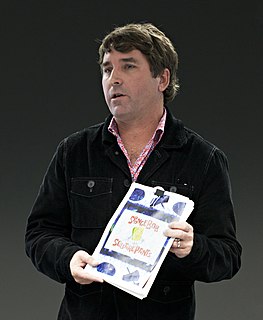A Quote by Bruce Friedrich
It would be great if all the fast-food outlets, slaughterhouses, these laboratories and the banks who fund them exploded tomorrow.
Related Quotes
If we really believe that animals have the same right to be free from pain
and suffering at our hands, then, of course we?re going to be, as a
movement, blowing things up and smashing windows ? I think it?s a great way
to bring about animal liberation ? I think it would be great if all of the
fast-food outlets, slaughterhouses, these laboratories, and the banks that
fund them exploded tomorrow. I think it's perfectly appropriate for people
to take bricks and toss them through the windows ... Hallelujah to the
people who are willing to do it.
I didn't have money to eat when I was 21. When I was short on cash, I would sometimes scam food from fast food places. I'd go into fast food chains and pretend I was from a movie studio, tell them they didn't send us the right order and demand they fix it. I've tried to make that right whenever I could.
I passionately disagreed with Treasury Secretary Hank Paulson's plan to bail out the banks by using a public fund called the Troubled Asset Relief Program (TARP) to help banks take toxic assets off their balance sheets. I argued that it would be much better to put the money where the hole was and replenish the equity of the banks themselves.
I think America's food culture is embedded in fast-food culture. And the real question that we have is: How are we going to teach slow-food values in a fast-food world? Of course, it's very, very difficult to do, especially when children have grown up eating fast food and the values that go with that.
I think Americas food culture is embedded in fast-food culture. And the real question that we have is: How are we going to teach slow-food values in a fast-food world? Of course, its very, very difficult to do, especially when children have grown up eating fast food and the values that go with that.
Instability mostly comes from the interface between the fact that the banks (or shadow banks) can create credit, money, and purchasing power in infinite quantities if we don't constrain them, and the fact that credit is primarily created to fund the purchase of urban real estate and land, which is somewhat fixed in supply.
Fast food may appear to be cheap food and, in the literal sense it often is, but that is because huge social and environmental costs are being excluded from the calculations. Any analysis of the real cost would have to look at such things as the rise in food-borne illnesses, the advent of new pathogens, antibiotic resistance from the overuse of drugs in animal feed, extensive water pollution from intensive agricultural systems and many other factors. These costs are not reflected in the price of fast food.




































